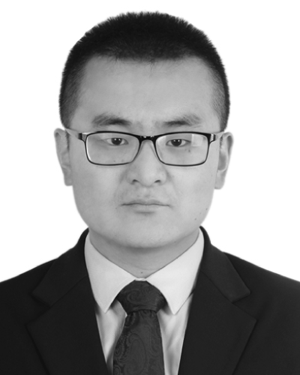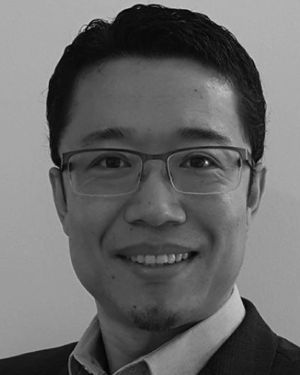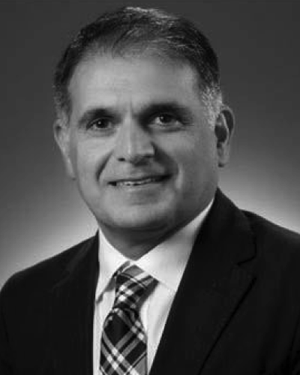Abstract:
Multimotor drives have become increasingly important in modern industrial applications due to their ability to provide superior performance, efficiency, and flexibility c...Show MoreMetadata
Abstract:
Multimotor drives have become increasingly important in modern industrial applications due to their ability to provide superior performance, efficiency, and flexibility compared to single-motor systems. Hence, this article presents an overview of recent advancements in multimotor drives, focusing on three main areas: structural diversity, advanced control, and emerging challenges and solutions. First, the various structural configurations of multimotor drives are summarized, which include parallel, cascaded, and hybrid configurations. The features as well as component motors and converters of each configuration are discussed, along with the selection rules of a particular configuration for a given application. Second, from the perspective of different performance requirements, the advanced control technologies used for multimotor drives are discussed. Then, this article highlights the technical challenges associated with multimotor drives, including coordination control, mutual interference, communication, interdependent fault diagnosis, and power quality. Meanwhile, viable solutions to these challenges are summarized. Finally, a discussion of the future directions and opportunities for further research and development in the field of multimotor drives is presented. Through this article, scholars and engineers can gain a comprehensive understanding of current and future developments in multimotor drives, contributing to continued research in this field and facilitating successful integration into various applications.
Published in: Proceedings of the IEEE ( Volume: 112, Issue: 3, March 2024)

School of Automation, Northwestern Polytechnical University, Shaanxi Key Laboratory of Small and Special Electrical Machine and Drive Technology, Xi’an, China
Chao Gong (Member, IEEE) received the B.Eng. and M.Eng. degrees in electrical engineering from Northwestern Polytechnical University, Xi’an, China, in 2014 and 2016, respectively, and the Ph.D. degree in electrical engineering from the University of York, York, U.K., in 2021.
He was a Postdoctoral Researcher hired by his supervisor with the University of York between 2021 and 2022. Between 2022 and 2023, he was a Postdocto...Show More
Chao Gong (Member, IEEE) received the B.Eng. and M.Eng. degrees in electrical engineering from Northwestern Polytechnical University, Xi’an, China, in 2014 and 2016, respectively, and the Ph.D. degree in electrical engineering from the University of York, York, U.K., in 2021.
He was a Postdoctoral Researcher hired by his supervisor with the University of York between 2021 and 2022. Between 2022 and 2023, he was a Postdocto...View more

Department of Electrical and Computer Engineering, University of Alberta, Edmonton, AB, Canada
Yunwei Ryan Li (Fellow, IEEE) received the B.Sc. (Engineering) degree in electrical engineering from Tianjin University, Tianjin, China, in 2002, and the Ph.D. degree from Nanyang Technological University, Singapore, in 2006.
In 2005, he was a Visiting Scholar with Aalborg University, Aalborg, Denmark. From 2006 to 2007, he was a Postdoctoral Research Fellow at Ryerson University, Toronto, ON, Canada. In 2007, he worked at...Show More
Yunwei Ryan Li (Fellow, IEEE) received the B.Sc. (Engineering) degree in electrical engineering from Tianjin University, Tianjin, China, in 2002, and the Ph.D. degree from Nanyang Technological University, Singapore, in 2006.
In 2005, he was a Visiting Scholar with Aalborg University, Aalborg, Denmark. From 2006 to 2007, he was a Postdoctoral Research Fellow at Ryerson University, Toronto, ON, Canada. In 2007, he worked at...View more

Rockwell Automation Canada, Cambridge, ON, Canada
Navid R. Zargari (Fellow, IEEE) received the B.Eng. degree from Tehran University, Tehran, Iran, in 1987, and the M.A.Sc. and Ph.D. degrees from Concordia University, Montreal, QC, Canada, in 1991 and 1995, respectively.
He has been with Rockwell Automation Canada, Cambridge, ON, Canada, since 1994, as a Senior Designer and the Manager of various research and development technology groups. For the past 25 years, he has bee...Show More
Navid R. Zargari (Fellow, IEEE) received the B.Eng. degree from Tehran University, Tehran, Iran, in 1987, and the M.A.Sc. and Ph.D. degrees from Concordia University, Montreal, QC, Canada, in 1991 and 1995, respectively.
He has been with Rockwell Automation Canada, Cambridge, ON, Canada, since 1994, as a Senior Designer and the Manager of various research and development technology groups. For the past 25 years, he has bee...View more

School of Automation, Northwestern Polytechnical University, Shaanxi Key Laboratory of Small and Special Electrical Machine and Drive Technology, Xi’an, China
Chao Gong (Member, IEEE) received the B.Eng. and M.Eng. degrees in electrical engineering from Northwestern Polytechnical University, Xi’an, China, in 2014 and 2016, respectively, and the Ph.D. degree in electrical engineering from the University of York, York, U.K., in 2021.
He was a Postdoctoral Researcher hired by his supervisor with the University of York between 2021 and 2022. Between 2022 and 2023, he was a Postdoctoral Fellow at the Department of Electrical and Computer Engineering, University of Alberta, AB, Canada. Since 2023, he has been a full-time Professor at the Northwestern Polytechnical University. He has co-authored three books: “Model Predictive Control for AC Motors”, “Crash Safety of High-Voltage Powertrain Based Electric Vehicles: Electric Shock Risk Prevention”, and “Electric Motor Drives Fundamentals (2nd Edition)”. He holds more than ten granted patents in area of motor drives. His research interests include electrical machines design and drives, power electronics, and motion control.
Dr. Gong received the IET Postgraduate Prize and the KM Stott Prize for excellence in scientific research in 2021.
Chao Gong (Member, IEEE) received the B.Eng. and M.Eng. degrees in electrical engineering from Northwestern Polytechnical University, Xi’an, China, in 2014 and 2016, respectively, and the Ph.D. degree in electrical engineering from the University of York, York, U.K., in 2021.
He was a Postdoctoral Researcher hired by his supervisor with the University of York between 2021 and 2022. Between 2022 and 2023, he was a Postdoctoral Fellow at the Department of Electrical and Computer Engineering, University of Alberta, AB, Canada. Since 2023, he has been a full-time Professor at the Northwestern Polytechnical University. He has co-authored three books: “Model Predictive Control for AC Motors”, “Crash Safety of High-Voltage Powertrain Based Electric Vehicles: Electric Shock Risk Prevention”, and “Electric Motor Drives Fundamentals (2nd Edition)”. He holds more than ten granted patents in area of motor drives. His research interests include electrical machines design and drives, power electronics, and motion control.
Dr. Gong received the IET Postgraduate Prize and the KM Stott Prize for excellence in scientific research in 2021.View more

Department of Electrical and Computer Engineering, University of Alberta, Edmonton, AB, Canada
Yunwei Ryan Li (Fellow, IEEE) received the B.Sc. (Engineering) degree in electrical engineering from Tianjin University, Tianjin, China, in 2002, and the Ph.D. degree from Nanyang Technological University, Singapore, in 2006.
In 2005, he was a Visiting Scholar with Aalborg University, Aalborg, Denmark. From 2006 to 2007, he was a Postdoctoral Research Fellow at Ryerson University, Toronto, ON, Canada. In 2007, he worked at Rockwell Automation Canada, Cambridge, ON, Canada. In 2007, he joined the University of Alberta, Edmonton, AB, Canada. He is currently a Professor and the Interim Department Chair at the University of Alberta. His research interests include distributed generation, microgrid, renewable energy, high-power converters, and electric motor drives.
Dr. Li was an AdCom Member-at-Large of IEEE Power Electronics Society (PELS) from 2021 to 2023. He received the Nagamori Foundation Award in 2022 and the Richard M. Bass Outstanding Young Power Electronics Engineer Award from IEEE PELS in 2013. He was the General Chair of IEEE Energy Conversion Congress of Exposition (ECCE) in 2020. He was the Editor-in-Chief of IEEE Transactions on Power Electronics Letters from 2019 to 2023. He served as an Associate Editor for IEEE Transactions on Power Electronics, IEEE Transactions on Industrial Electronics, IEEE Transactions on Smart Grid, and IEEE Journal of Emerging and Selected Topics in Power Electronics. He is recognized as a Clarivate Highly Cited Researcher.
Yunwei Ryan Li (Fellow, IEEE) received the B.Sc. (Engineering) degree in electrical engineering from Tianjin University, Tianjin, China, in 2002, and the Ph.D. degree from Nanyang Technological University, Singapore, in 2006.
In 2005, he was a Visiting Scholar with Aalborg University, Aalborg, Denmark. From 2006 to 2007, he was a Postdoctoral Research Fellow at Ryerson University, Toronto, ON, Canada. In 2007, he worked at Rockwell Automation Canada, Cambridge, ON, Canada. In 2007, he joined the University of Alberta, Edmonton, AB, Canada. He is currently a Professor and the Interim Department Chair at the University of Alberta. His research interests include distributed generation, microgrid, renewable energy, high-power converters, and electric motor drives.
Dr. Li was an AdCom Member-at-Large of IEEE Power Electronics Society (PELS) from 2021 to 2023. He received the Nagamori Foundation Award in 2022 and the Richard M. Bass Outstanding Young Power Electronics Engineer Award from IEEE PELS in 2013. He was the General Chair of IEEE Energy Conversion Congress of Exposition (ECCE) in 2020. He was the Editor-in-Chief of IEEE Transactions on Power Electronics Letters from 2019 to 2023. He served as an Associate Editor for IEEE Transactions on Power Electronics, IEEE Transactions on Industrial Electronics, IEEE Transactions on Smart Grid, and IEEE Journal of Emerging and Selected Topics in Power Electronics. He is recognized as a Clarivate Highly Cited Researcher.View more

Rockwell Automation Canada, Cambridge, ON, Canada
Navid R. Zargari (Fellow, IEEE) received the B.Eng. degree from Tehran University, Tehran, Iran, in 1987, and the M.A.Sc. and Ph.D. degrees from Concordia University, Montreal, QC, Canada, in 1991 and 1995, respectively.
He has been with Rockwell Automation Canada, Cambridge, ON, Canada, since 1994, as a Senior Designer and the Manager of various research and development technology groups. For the past 25 years, he has been involved with simulation, analysis, and design of power converters for medium-voltage alternating current (ac) drives. He has coauthored more than 200 research papers and two books: Power Conversion and Control of Wind Energy Systems and Modular Multilevel Converters: Analysis, Control and Applications. He holds more than 40 granted/pending patents in the areas of power converters, motor drives, and medium-voltage applications. His research interests include power converter topologies and their control aspects, power semiconductors, and renewable energy sources.
Dr. Zargari is the Co-Editor-in-Chief of IEEE Transactions on Power Electronics (TPEL) and an Associate Editor of IEEE Open Journal of Power Electronics (OJ-PEL) and IEEE Journal of Emerging and Selected Topics in Power Electronics (JESTPE).
Navid R. Zargari (Fellow, IEEE) received the B.Eng. degree from Tehran University, Tehran, Iran, in 1987, and the M.A.Sc. and Ph.D. degrees from Concordia University, Montreal, QC, Canada, in 1991 and 1995, respectively.
He has been with Rockwell Automation Canada, Cambridge, ON, Canada, since 1994, as a Senior Designer and the Manager of various research and development technology groups. For the past 25 years, he has been involved with simulation, analysis, and design of power converters for medium-voltage alternating current (ac) drives. He has coauthored more than 200 research papers and two books: Power Conversion and Control of Wind Energy Systems and Modular Multilevel Converters: Analysis, Control and Applications. He holds more than 40 granted/pending patents in the areas of power converters, motor drives, and medium-voltage applications. His research interests include power converter topologies and their control aspects, power semiconductors, and renewable energy sources.
Dr. Zargari is the Co-Editor-in-Chief of IEEE Transactions on Power Electronics (TPEL) and an Associate Editor of IEEE Open Journal of Power Electronics (OJ-PEL) and IEEE Journal of Emerging and Selected Topics in Power Electronics (JESTPE).View more


